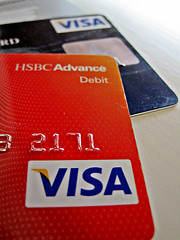While the old axiom may be Caveat emptor (buyer beware), in this day and age Caveat vendor, (seller beware) is becoming more common.
One Australian businesswoman learned that the hard way. In fact, she ended up calling it quits and selling her business over it.
Graphic Designer Diane Kennedy is issuing a warning to all small businesses who do business with international customers not to accept payment on credit cards lest they get hit with a ‘merchant chargeback’ like she did.
Kennedy had done work on a website and logo for an American client. She had received a $2,500 deposit from the client, which was paid by Visa, and was to receive an additional $2,500 once the work was completed, plus her third-party web developer was to also receive $2,500 from the American client.
However, just days before the website was to go live, the American client and Kennedy had a minor dispute, causing the client to refuse to pay her for the work and issue a merchant chargeback on the $2,500 deposit.
A ‘chargeback’ describes a bank’s process of debiting a merchant’s bank account with an amount of a transaction that had previously been credited, in this case, the $2,500 deposit.
Originally, chargebacks were created to protect consumers from dishonest merchants, but Kennedy is warning dishonest business customers are exploiting it now because banks and credit card companies seem to always vote in their favour.
For the entire project, Kennedy said, communication between her and the client was great, but that all changed when the contract was coming to a close.
“She said the manner I used was rude and she wouldn’t pay a cent and wanted her money back,” Kennedy said. “There had been no indication before this that she was unhappy. She’d said, ‘I love the concept, you’re doing a great job’.”
After that exchange, the client then issued a merchant chargeback on her Visa via the US PayPal office for the deposit she had given Kennedy.
A few days after that, the website went live with Kennedy’s and her developer’s (unpaid) work appearing on the site.
“She then pulled down the site, locked us out, and then copied the site with an offshore developer in a third world country keeping the code,” Kennedy said. “My developer checked, the entire source code is the same [on the new website].”
Kennedy contacted Visa about undoing the chargeback, but the credit provider decided Kennedy’s client had never received any goods or services from her and therefore they would not be reversing it.
“Visa decides in the cardholder’s favour every time,” said Kennedy. “Merchants have no right with credit card transactions, even if you can show it’s legitimate.”
Kennedy said she thoroughly documented all the work done and all the transactions between her and the client and she’s sent all the documentation to Visa, but is not expecting any help from the credit card company.
She has since sold her business, Blossom Graphic Design, to an unrelated party, saying it was more the emotional stress rather than the debt that made her want to get out of the business.
Kennedy says she has since found online groups of merchants which have experienced similar issues with chargebacks and are petitioning banks to review and reform their practices.
She said she recommends merchants who are selling products or services to overseas customers to only accept bank transfers as payments rather than credit card payments to better protect themselves from this type of scamming.
Tags: Australia, business, merchant chargeback, online, scam, Visa, warning
